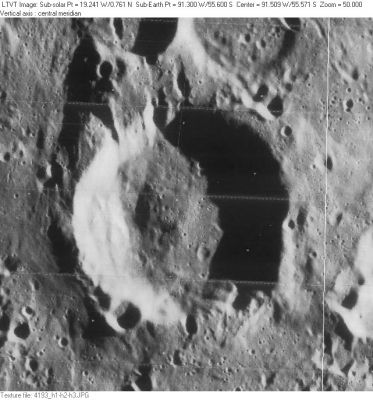Arrhenius
Contents
[hide]Arrhenius
| Lat: 55.6°S, Long: 91.3°W, Diam: 40 km, Depth: 2.75 km, Rükl: (farside) |
Images
LPOD Photo Gallery Lunar Orbiter Images
Maps
(LAC zone 135B4) USGS Digital Atlas PDF
Description
Description: Wikipedia
Additional Information
Depth data from Kurt Fisher database
- Westfall, 2000: 2.75 km
- From the shadows in LO-IV-193H, the east rim of Arrhenius is 2100-2400 m above the floor. - Jim Mosher
Nomenclature
- Named for Svante August Arrhenius (February 19, 1859 – October 2, 1927), a Swedish chemist and Nobel laureate. He was one of the founders of the science of physical chemistry. Arrhenius developed a theory to explain the ice ages, and first speculated that changes in the levels of carbon dioxide in the atmosphere could substantially alter the surface temperature through the greenhouse effect. The Arrhenius equation is named after him.
- Whitaker does not explain the origin of this name which the on-line IAU Planetary Gazetteer says was approved in 1970. Although it appears in the cumulative list of approved names in IAU Transactions XVB, it is not clear precisely when and where it was approved. - Jim Mosher
LPOD Articles
Bibliography
S. A. Arrhenius in the Sourcebook Project (William R. Corliss)
- Page 391 in Mysterious Universe, a handbook of astronomical anomalies (1979) :
- On the Nature of the Canals of Mars (Carl Sagan and James B. Pollack, Nature, 1966).
